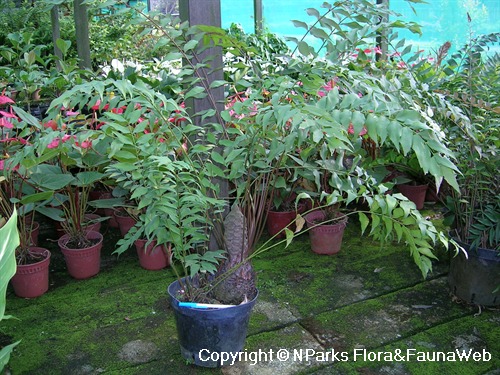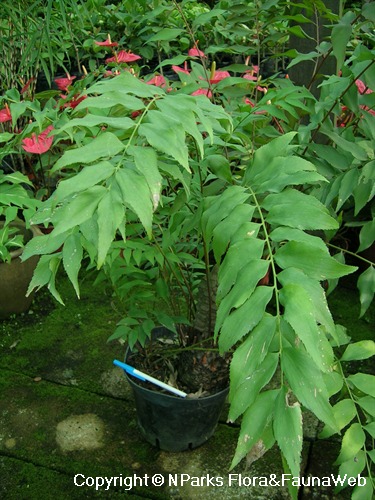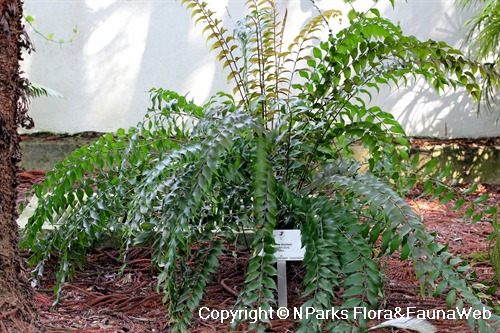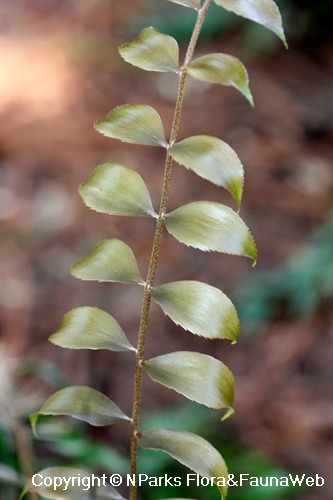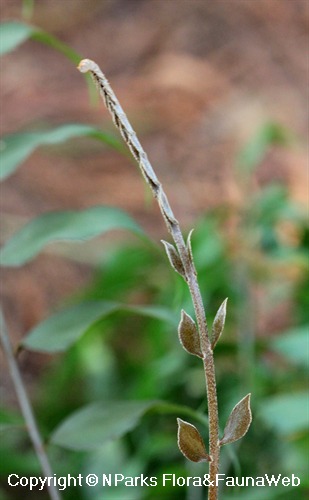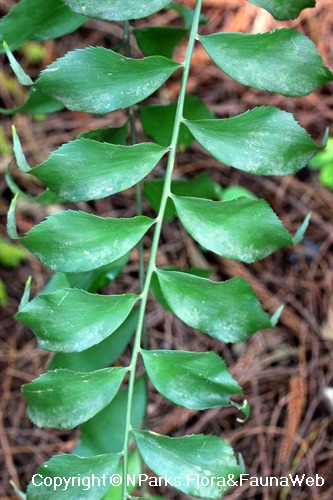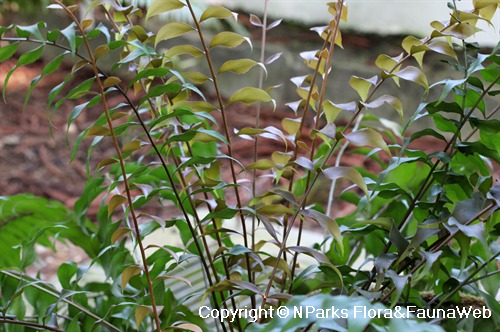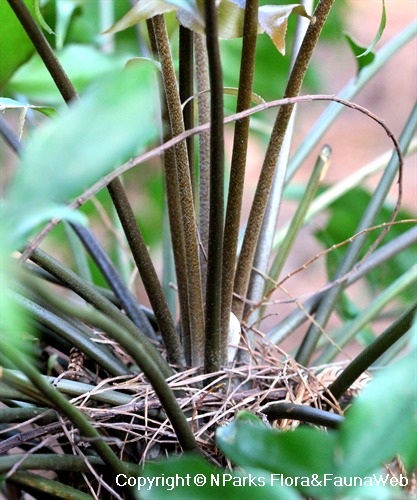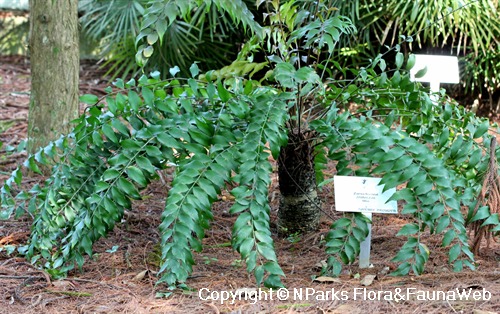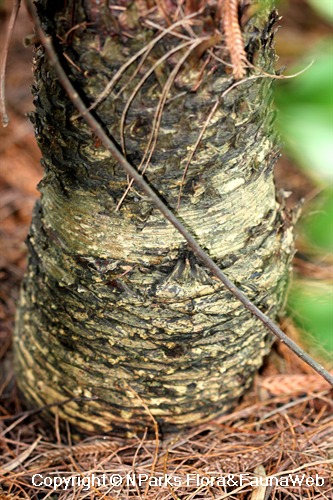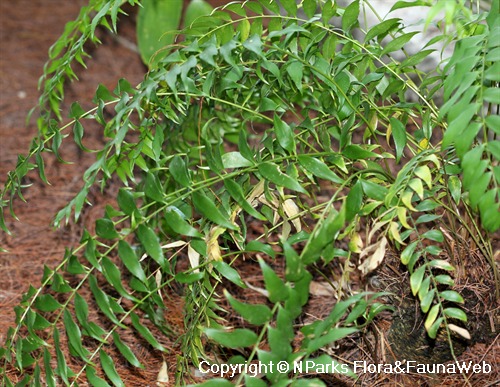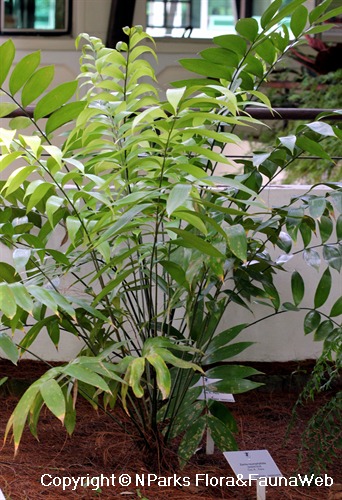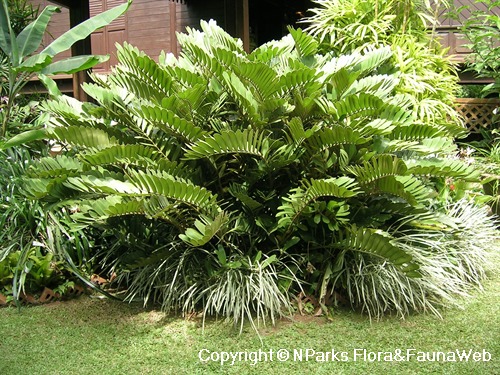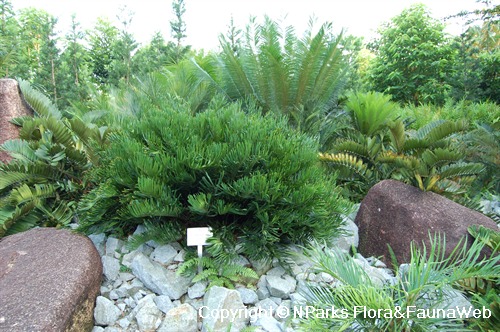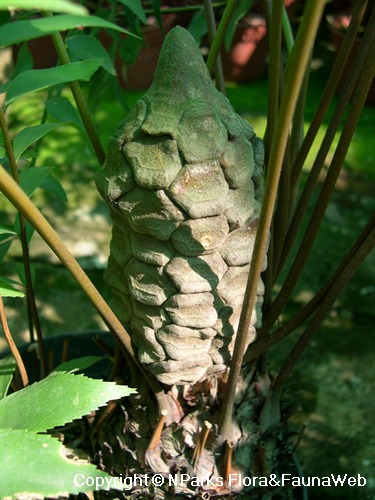
Back
Zamia fischeri Miq.ex Lem
| Family Name: | Zamiaceae |
| Synonyms: | Zamia forsteri J.Schust., Zamia tenuifolia Fisch. ex Miq |
Name
Classifications and Characteristics
| Plant Division | Gymnosperms (Non-Flowering Seed Plants) (Cycad) |
|---|---|
| Plant Growth Form | Cycad |
| Lifespan (in Singapore) | Perennial |
| Plant Ploidy | Haploid / Monoploid (2n=1x) |
Biogeography
| Native Distribution | Eastern Mexico |
|---|---|
| Native Habitat | Terrestrial |
| CITES Protection | True (Appendix II) |
Description and Ethnobotany
| Foliage | Green. Unlike other species, it has no prickles. The young leaves are in light brown, contrast with the mature leaves. Leaflets are papery, lanceolate with margins having serrations in the upper half. It looks similar to Zamia vazquezii. The Z. fischeri can be distinguished by having smaller leaves, and no prickles on its petioles. |
|---|---|
| Habitat | Found on well-drained rocky sites in evergreen forests at about 600m in elevation. Receiving average of 1500 - 2000 mm rainfall annually, falling mainly in summer. |
Landscaping Features
| Desirable Plant Features | Ornamental Foliage, Ornamental Form |
|---|---|
| Landscape Uses | Parks & Gardens, Small Gardens, Interiorscape/ Indoor Plant |
Plant Care and Propagation
| Light Preference | Semi-Shade, Full Shade, [Remarks] (They can adapts to conditions of almost full sun to full shade.) |
|---|---|
| Water Preference | Moderate Water |
| Plant Growth Rate | Slow |
| Rootzone Tolerance | Moist Soils, Well-Drained Soils |
| Potential Problems | Easily affected by scale insects and mealybug. Periodic treatment is suggested, |
| Pest(s) | Sucking Insects |
| Propagation Method | Seed |
Foliar
| Mature Foliage Colour(s) | Green |
|---|---|
| Mature Foliage Texture(s) | Smooth, Glossy / Shiny, Thin |
| Prominent Young Flush Colour(s) | Brown |
| Young Flush Texture(s) | Smooth, Glossy / Shiny |
| Foliar Type | Compound |
Image Repository
Others
| Master ID | 1289 |
|---|---|
| Species ID | 5125 |
| Flora Disclaimer | The information in this website has been compiled from reliable sources, such as reference works on medicinal plants. It is not a substitute for medical advice or treatment and NParks does not purport to provide any medical advice. Readers should always consult his/her physician before using or consuming a plant for medicinal purposes. |

